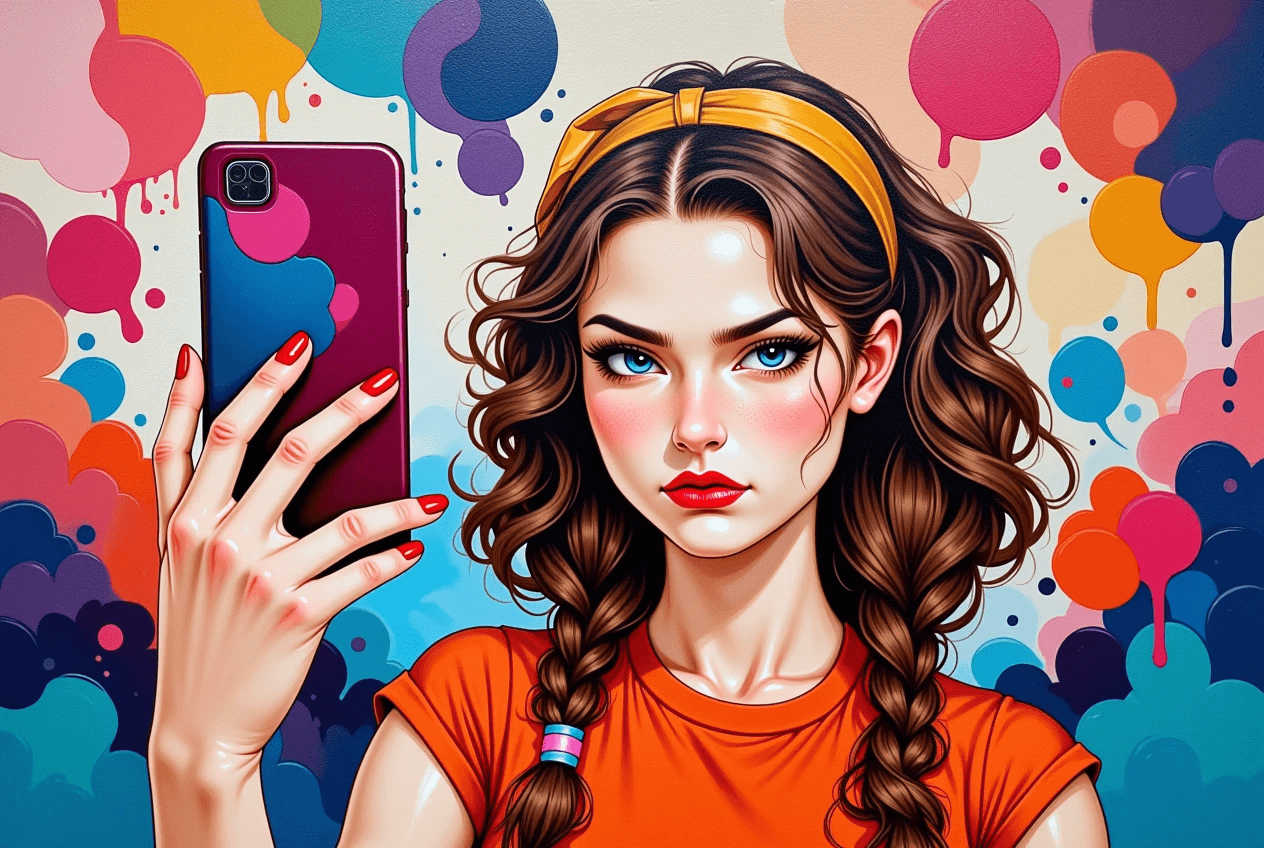SOCIAL MEDIA HAS RUINED WOMEN & SOCIETY
On my YouTube page, I often get a lot of guys that bring up this topic. So, I guess I’ll chime in and give my take on it as well. Social media has ruined young women. I’m talking about Facebook and Instagram. They focus on sharing and sometimes oversharing one’s own image and opinions. Young adults who use these platforms frequently are prone to narcissism. The higher the amount of social media use, the higher levels of grandiose narcissism, or in a simpler term, feeling of superiority.
Oh, and don’t forget those ever-so-important likes! In this post, I’m going to talk about how social media can be a detriment to one’s mental health and the types of social media behaviors. So, without further ado, let’s dive in. As a part of today’s generation, we’ve witnessed first-hand the moral decay of the youth and how heavily influenced they are by the secular world.
I’d like to share with you three points that I’ve come up with to describe the major problems within today’s generation. Many of the issues related to our youths are mainly tied to these three ideas.
- The over utilization of tech and social media in general.
- The influence of mainstream media over the youth which includes but not limited to music.
- Narcissism amongst the youth, especially social issues.
Let’s say someone opens up her IG app on the phone and scrolls down the feed. Others are posting fun and adventurous images on their profile and are acquiring a ton of likes. But now, a petrifying feeling begins to set in as you look back into your profile and check that you only have 9 or 10 likes because you didn’t look good enough. A post with an image of you displaying your cooking abilities or some other kind of talent may draw a little bit of interest. However, it would never command the attention of a narcissistic female who dolls herself up just to look attractive. This is the issue. Want to succeed on a social media app? You won’t find any of this stuff in the terms of policy. However, there are unwritten rules that you must follow if you want clout. Posting a selfie, uploading the best image of yourself. Being dressed half-naked and looking glamorous. Yep, that’s the formula that works.
Even if filters are used to improve the appearance, people constantly sending a DM will confirm your status as someone popular. On the flip side, if you post an image of a beautiful background without you and the image, forget it. The major component of social media is the ability to display one’s own life to the world, which may lead some people to post an inordinate amount of information about themselves. Perhaps because posting on social media involves some degree of seeking attention, people have wondered how social media usage may relate to narcissism—which is a personality trait that is often tied to self-absorption. Well, either way, it’s ever so challenging to be true to yourself while not being influenced by those around you. This leads to a rise in depression and anxiety among our generation.
Going back and forth over who is more popular and who is more aesthetically pleasing would only ascribe to an increase in mental health issues, cyber bullying, and hostilities on the rise in the coming future.
Sometimes people post something and wait for the likes and comments to roll in, and other times people may just scroll through other people’s content, possibly feeling like others are better off than them, such as seeing their friend on vacation in the Bahamas again for the second time in two months, riding in that C8 Corvette, or just flexing whatever. Every now and then someone may come across a post from someone who is complaining about all the wrong things in their life and feel better off by comparison. In a different example, someone may come across pictures from a family or friend event and feel left out because they didn’t get an invite. These are the kinds of social media behaviors that cause the types of issues that I mentioned.
So again, those types of behaviors are active use, which is posting content, passive use, looking at other people’s content, upward comparison thinking others are better off, downward comparison thinking others are worse off, and social exclusion, seeing an event from which you were excluded. Before I end this post, I want to share a little food for thought for your mind. Remember this key point, learn how to disconnect from social media and realize that the world does not always revolve around or require a handheld screen.


